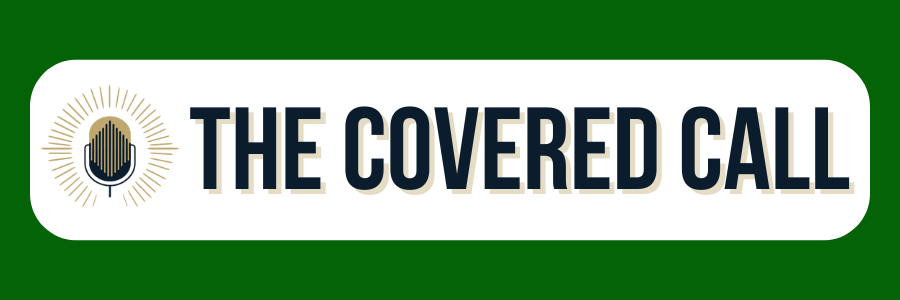Why Finding A Business Mentor Matters
Finding a mentor isn't just a common business practice; it's a strategic decision that can significantly influence your career path. A business mentor, armed with experience and industry insights, can offer invaluable guidance, helping you navigate challenges and seize opportunities. This support can be the key to not just surviving, but thriving in the competitive business world.
The Tangible Benefits of Mentorship
Having a mentor offers a wide range of advantages, both tangible and intangible. Mentors can help you develop essential business acumen, sharpen your strategic thinking, and accelerate your professional growth. They create a safe environment to brainstorm, receive constructive criticism, and gain fresh perspectives.
This can lead to more informed decision-making, stronger problem-solving skills, and increased confidence. A mentor acts as a sounding board, offering objective feedback and helping you see situations from different angles.
Additionally, mentorship cultivates accountability. Knowing you have someone to discuss your progress with can be a powerful motivator. This external accountability can help you stay focused on your goals and overcome procrastination or self-doubt. Regular check-ins provide opportunities to review progress, identify roadblocks, and adjust strategies as needed.
Mentorship and Business Success: A Proven Correlation
The positive impact of mentorship on business success is undeniable. Finding a mentor can significantly enhance both your career and business outcomes. A striking 98% of all U.S. Fortune 500 companies have mentoring programs, and an impressive 100% of the top 50 U.S. Fortune 500 companies utilize them. This widespread adoption highlights the importance large corporations place on mentorship for employee development and retention.
Companies with mentoring programs often report higher profits and better employee retention. This suggests that mentorship provides invaluable support and insights crucial for navigating the complexities of the business world. For more detailed statistics, see this insightful article.
Beyond the Bottom Line: The Intangible Advantages
The benefits of mentorship go beyond quantifiable metrics. It also offers less tangible, but equally valuable, advantages. These include increased self-awareness, improved communication skills, and a stronger sense of professional identity.
A mentor can help you recognize your strengths and weaknesses, offering guidance on how to maximize your assets and address areas needing improvement. This personalized feedback plays a vital role in shaping your career path and achieving long-term success. Furthermore, a good mentor provides emotional support and encouragement, especially during difficult times. Having someone who believes in your potential and offers guidance during setbacks can be essential for maintaining motivation and resilience. This support is particularly valuable for entrepreneurs, who often face unique pressures.

Identifying Your Mentorship Needs

Before embarking on the search for a business mentor, it's essential to understand your specific needs. This self-reflection will help you find a mentor who can genuinely contribute to your success. It involves evaluating your current skills, identifying growth areas, and defining the business challenges you face. By understanding your needs clearly, you can find a mentor equipped to provide valuable guidance and support.
Assessing Your Current Skill Set and Knowledge Gaps
Begin by honestly assessing your strengths and weaknesses. Think about your skills in areas like leadership, communication, financial management, and marketing. Recognizing your knowledge gaps is just as important as identifying your strengths.
Are you struggling with strategic planning or scaling your business? Do you need support in networking or building a strong team? Clearly defining these areas will help you find a mentor with relevant expertise.
Defining Your Business Challenges
What specific challenges are slowing your business growth? Are you having difficulty attracting investors, entering new markets, or creating innovative products? Identifying these challenges will guide you toward a mentor who has successfully navigated similar obstacles. Their experiences can provide valuable insights and strategies for overcoming these hurdles. This focused approach ensures your mentorship addresses your most pressing business needs.
Articulating Your Mentorship Goals
After identifying your needs and challenges, clearly articulate your mentorship goals. What do you want to accomplish with the guidance of a mentor? Do you aim to increase revenue, expand your network, or enhance your leadership skills?
Defining clear goals allows you to communicate your expectations to potential mentors and ensures a mutually beneficial relationship. These goals should be specific, measurable, achievable, relevant, and time-bound (SMART).
Determining Your Ideal Mentor Profile
Based on your self-assessment, create a profile of your ideal mentor. What experience, expertise, and personality traits are you seeking? Do you prefer a hands-on approach or a more advisory role? Considering these factors helps refine your search and find a compatible mentor.
Think about communication styles, industry background, and even personal values. Do you connect better with someone direct and results-oriented, or someone with a more nurturing approach?
Choosing the Right Communication Style
Finally, consider your preferred communication style and frequency. Do you prefer regular meetings, email updates, or a combination of both? Establishing these preferences early sets the foundation for a productive and comfortable mentorship relationship. How often do you envision connecting with your mentor – weekly, bi-weekly, or monthly?
These details, while seemingly minor, are crucial for finding a business mentor who truly fits your work style. Establishing these parameters upfront ensures a smoother, more effective mentorship experience for both of you.
Where To Find Potential Business Mentors
Finding the right business mentor can significantly impact your growth, but the search itself can feel overwhelming. Don't worry, there are many ways to connect with potential mentors, both online and offline. Just like diversifying an investment portfolio, exploring multiple avenues increases your chances of finding the perfect mentor for your specific needs.
Leveraging Your Existing Network
A great place to start your search is within your existing network. Think about colleagues, former professors, or even family friends with relevant business experience. These individuals already know your strengths and goals, making initial conversations easier. This approach builds on established trust and rapport, creating a comfortable foundation for a potential mentorship.
Exploring Professional Organizations
Industry associations and chambers of commerce are valuable resources for finding mentors. These organizations often hold networking events designed to connect professionals in specific fields. Such events offer opportunities to meet experienced individuals who might be open to mentorship. Attending industry conferences, for instance, allows you to connect with leaders in your field and potentially build relationships that could evolve into mentorships.
Utilizing Online Mentorship Platforms
Several online platforms are dedicated to connecting mentors and mentees. SCORE, a nonprofit partnered with the U.S. Small Business Administration, provides free mentoring and resources to entrepreneurs. MicroMentor connects small business owners with mentors globally. These platforms offer structured programs and access to mentors with specific expertise. Mentorship is vital for businesses of all sizes, particularly small businesses. 70% of small businesses with mentors survive for five years or more – double the rate of those without mentors. While 93% of small and medium-sized businesses recognize the value of mentoring, only 25% of owners actually have a mentor. This disparity highlights the importance of actively seeking mentorship and the positive impact it can have on business success. For more detailed statistics on mentoring, see this article.
You might be interested in: How to master...
Tapping Into Online Communities
Online communities, such as LinkedIn groups and industry forums, provide another way to connect with potential mentors. Active participation allows you to demonstrate your knowledge, build relationships, and identify individuals with the expertise you're looking for. Remember to contribute meaningfully to the community and build credibility before seeking mentorship. Authentic engagement fosters genuine connections.
Considering Cold Outreach
While networking and online platforms provide structure, don't underestimate the effectiveness of cold outreach. Identifying professionals you admire and contacting them directly can yield positive results. Craft a personalized message explaining why you admire their work and how their expertise aligns with your goals. Treat it like a job application—highlight your value and what you hope to gain from the connection.

Comparing Mentorship Sources
The best approach for finding a mentor depends on your individual needs. The table below compares various mentorship sources to help you make an informed choice.
To help you navigate the various options for finding a business mentor, the following table provides a comparison of different sources, highlighting their strengths and requirements:
Top Sources For Finding Business Mentors A comparative analysis of various platforms and organizations where experienced business mentors can be located, outlining their unique benefits and requirements.
| Mentor Source | Best For | Cost | Time Commitment | Application Process |
|---|---|---|---|---|
| Existing Network | Initial connections, leveraging existing relationships | Free | Varies depending on relationship | Informal |
| Professional Organizations | Industry-specific connections, networking | Membership fees | Varies depending on event frequency | Networking, relationship building |
| Online Mentorship Platforms | Structured mentorship programs, specific expertise | Varies by platform (some free) | Structured program timelines | Application, matching process |
| Online Communities | Building relationships organically, demonstrating expertise | Free (except for premium features) | Varies depending on engagement | Active participation, relationship building |
| Cold Outreach | Targeting specific individuals, showcasing initiative | Free | Requires research and personalized outreach | Direct contact |
This table summarizes the key differences between each source, helping you choose the best fit for your current situation and goals. Consider the cost, time commitment, and application process when making your decision.
By understanding the different avenues available and taking a proactive approach, you can effectively navigate the search process and find a business mentor who can truly help you achieve your goals. This proactive approach is essential for maximizing your chances of finding a compatible and valuable mentorship.
Approaching Potential Mentors Effectively

Finding the right business mentors is essential for growth. But it's not enough just to identify them; you need to know how to approach them effectively. Building a solid mentor-mentee relationship requires a strategic approach, focusing on a positive first impression, whether it's through email, LinkedIn, or in person at networking events.
Crafting a Personalized Approach
Busy professionals rarely respond to generic outreach messages. Personalization is crucial for grabbing a potential mentor's attention. Research their background thoroughly. Show a genuine understanding of their work and accomplishments. This demonstrates respect for their time and expertise.
Referencing a specific project they spearheaded or an article they published can show you've done your homework. Explain how their experience aligns with your goals and why you've chosen them specifically. This clarifies the potential benefits for both of you.
Effective Communication Strategies
Your initial communication sets the stage for the entire mentorship. Be upfront about your goals and the type of guidance you're looking for. Avoid long emails or demanding requests. Concentrate on building a connection and establishing rapport.
Email: Keep it concise and professional, highlighting key connection points and your reasons for reaching out.
LinkedIn: Craft a personalized connection request, going beyond the standard template. Briefly explain your admiration for their work and your desire for mentorship.
Networking Events: Approach potential mentors with confidence. Introduce yourself succinctly and express your interest in their expertise.
Starting Small and Building Momentum
Mentorship thrives on a gradual approach. Start with a small request, like a brief informational interview or a short coffee chat. This shows respect for their time and allows for a low-pressure introduction. This initial meeting helps assess mutual compatibility and explore areas of collaboration.
Templates and Conversation Starters
Consider using adaptable templates for your initial outreach:
Email: "I've been following your work on [specific project/area of expertise] and am incredibly impressed with your achievements. I'm currently working on [your project/goal] and would be grateful for the opportunity to discuss how your insights could help me navigate [specific challenge]."
LinkedIn: "I'm reaching out to you because I admire your work in [field] and am seeking guidance as I develop my career in [your area of focus]. I'd appreciate the chance to connect and learn more about your experiences."
Networking Events: "Hi [Mentor's Name], I'm [Your Name] and I'm really interested in your work on [topic]. I'm currently facing [challenge] in my own work, and I'd love to hear your perspective on it."
By approaching potential mentors with respect, personalization, and clearly defined needs, you'll significantly improve your chances of building a rewarding mentorship. Remember, building a strong mentor-mentee relationship takes time and effort, beginning with that crucial first interaction.
Evaluating Mentor-Mentee Compatibility
Finding the right business mentor isn't simply about identifying a successful person in your field. It's about mentor-mentee compatibility. Think of it like building a team: you need individuals whose skills and personalities work well together. This section explores the factors contributing to a successful mentorship, like shared values, communication, and mutual respect.
Key Factors in Mentor-Mentee Compatibility
A strong mentor-mentee relationship rests on several key pillars:
Shared Values: Do your core values align with your potential mentor’s? This includes work ethic, business practices, and general outlook. Mismatched values can create conflict and hinder the relationship.
Communication Styles: How does your potential mentor communicate? Are they direct, or more collaborative? Effective communication is key for understanding feedback and building rapport. Finding a communication style that suits your learning style will make the most of the experience.
Mutual Respect: Respect is fundamental. Does the potential mentor value your time and opinions? Do you respect their experience and insights? Mutual appreciation makes for a productive mentorship.
Aligned Goals: Do your professional goals align with the mentor’s expertise? If you’re aiming for international markets, a mentor specializing in local business development may not be the best fit. Alignment ensures relevant guidance.
Assessing Potential Mentors
Use your initial interactions to assess compatibility. Ask thoughtful questions and observe their responses. Inquire about their past mentoring experiences and their approach to guidance. Note their listening skills and how they respond to differing viewpoints.
Also, consider diversity in thought and experience. A mentor with a different background can bring fresh perspectives, which can be especially valuable when navigating complex challenges and encouraging creative solutions.
Using a Compatibility Framework
A framework can help structure your evaluation. The table below provides a starting point.
To help you systematically evaluate potential mentorship matches, consider the following framework:
Mentor Compatibility Assessment Framework A strategic framework to evaluate potential mentorship matches based on key compatibility metrics, ensuring a productive and insightful relationship.
| Compatibility Factor | Questions To Ask | What To Look For | Red Flags |
|---|---|---|---|
| Shared Values | What are your core business principles? | Alignment with your values regarding ethics, work ethic, and long-term vision. | Disagreement on fundamental business practices or ethical considerations. |
| Communication Styles | How do you prefer to communicate with mentees? | Clear, concise, and respectful communication that suits your learning style. | Inconsistent, unclear, or dismissive communication. |
| Mutual Respect | What are your expectations of a mentee? | Active listening, valuing your opinions, and respecting your time and efforts. | Condescending attitude, poor listening skills, or disregard for your input. |
| Aligned Goals | What areas of business development are you most passionate about? | Expertise and experience aligned with your career goals and aspirations. | Lack of relevant expertise or experience in your target area. |
This framework provides a structured approach to evaluating mentors and selecting the best fit for your career. By considering these factors, you can build a strong, productive mentor-mentee relationship and boost your chances of success.
Structuring The Mentorship Relationship
After finding a business mentor, the next step is structuring the relationship. This involves creating a framework that benefits both the mentor and mentee. A well-defined structure ensures everyone is on the same page and maximizes their time together. It's like building a house: a solid foundation is essential.
Defining Meeting Frequency and Communication Protocols
Begin by agreeing on a regular meeting schedule. This could be weekly, bi-weekly, or monthly, depending on your schedules and the mentorship’s intensity. Consistency is key for maintaining momentum and progress.
How you communicate is just as important as how often you meet. Will you primarily use email, Zoom video calls, or phone calls? Establishing clear communication channels and response time expectations streamlines the process and prevents misunderstandings.
Setting Measurable Goals From the Outset
Before the first official mentoring session, collaboratively define SMART goals: Specific, Measurable, Achievable, Relevant, and Time-bound. These goals should align with your career objectives and the mentor’s expertise. Clear goals provide direction and allow you to track progress, and they can be revised as needed.
Creating Effective Meeting Agendas
Prepare agendas in advance to maximize each meeting's value and keep discussions focused and productive. Share these agendas with your mentor beforehand so they can also come prepared. A well-structured agenda respects everyone’s time and facilitates more meaningful discussions. It also demonstrates your commitment and sets a professional tone.
Choosing the Right Mentorship Model
Mentorship takes many forms, from informal check-ins to structured programs. Choose a model that suits your needs and the mentor's availability. Some mentors prefer scheduled meetings, while others prefer ad-hoc communication. Find what works for both of you.
Informal Mentorship: This involves occasional conversations and advice, often without a rigid schedule.
Structured Mentorship: This follows a formal structure with set meeting frequencies, goals, and progress evaluations.
Group Mentorship: One mentor guides a small group of mentees, fostering peer learning and shared insights.
Addressing Potential Challenges
Mentorships, like any relationship, can face challenges. Time conflicts, misaligned expectations, and communication breakdowns can occur. Address these issues openly and respectfully. Proactive communication is key for navigating challenges and maintaining a healthy mentorship.
For example, if you’re struggling to meet deadlines due to unforeseen circumstances, communicate this promptly. Open communication fosters understanding and allows for adjustments.
By establishing a structured approach, setting clear goals, and maintaining open communication, you can build a strong, mutually beneficial mentorship. This framework is essential for maximizing the experience and achieving your outcomes. Be adaptable and willing to adjust the structure and communication style as the relationship evolves.
Being A Great Mentee: Maximizing The Relationship
The success of a mentorship depends heavily on the mentee's active role. Finding a mentor is only the first step. Truly benefiting from the relationship requires dedication, a proactive approach, and a genuine desire to learn. It's a two-way street: your mentor provides guidance, and you bring enthusiasm and a commitment to personal and professional growth.
Proactive Engagement and Preparedness
Being proactive shows your commitment to the mentorship. Arrive at each meeting with a clear agenda and specific questions. This demonstrates respect for your mentor's time and helps ensure productive discussions. Just like an athlete prepares for a competition, a mentee should prepare for each mentoring session.
Pre-Meeting Preparation: Look over past discussions, pinpoint areas for follow-up, and develop questions related to your current challenges.
Active Listening: Pay close attention to your mentor’s advice, ask clarifying questions when needed, and show genuine interest in their perspective.
Follow-Up: After each meeting, summarize key takeaways and action items. A follow-up email to your mentor reinforces your commitment and shows you value their input.
Openness to Feedback and Constructive Challenges
A good mentor will offer constructive criticism, so be open to feedback, even if it's uncomfortable. See feedback as a chance to improve, not as a personal attack. A willingness to learn and adapt is crucial for maximizing the benefits of mentorship.
While respecting your mentor's expertise, don't hesitate to respectfully challenge their ideas. Constructive disagreement can spark deeper understanding and lead to innovative solutions. Treat it as a collaborative brainstorming session where diverse perspectives enhance the discussion.
Expressing Gratitude and Maintaining Consistent Communication
Showing gratitude reinforces the value you place on the mentorship. A simple thank you or a small gesture of appreciation can make a big difference. Regular communication keeps the relationship strong and provides ongoing support.
Maintaining consistent communication is essential for a successful mentorship. Regular check-ins, even between scheduled meetings, show your engagement and allow you to address any obstacles quickly.
Transitioning to a Collegial Relationship
As the formal mentorship concludes, think about how to transition to a more collegial relationship. The connection you’ve built can remain valuable as you advance in your career. Networking and mutual support can form the basis of a lasting professional bond. This transition can create a supportive network for years to come.
By actively participating, being receptive to feedback, and maintaining consistent communication, you can maximize the benefits of your mentorship and build a strong, enduring professional relationship. This approach transforms the mentorship from a temporary period of guidance into a valuable long-term asset.
Are you ready to unlock your potential and find true freedom in your business and personal life? Tune in to The Covered Call Podcast for inspiring stories, proven strategies, and mindsets that break the mold. Join us as we explore unique paths with entrepreneurs, investors, and thought leaders who define success on their own terms.

